How consumers in rich countries drive global deforestation
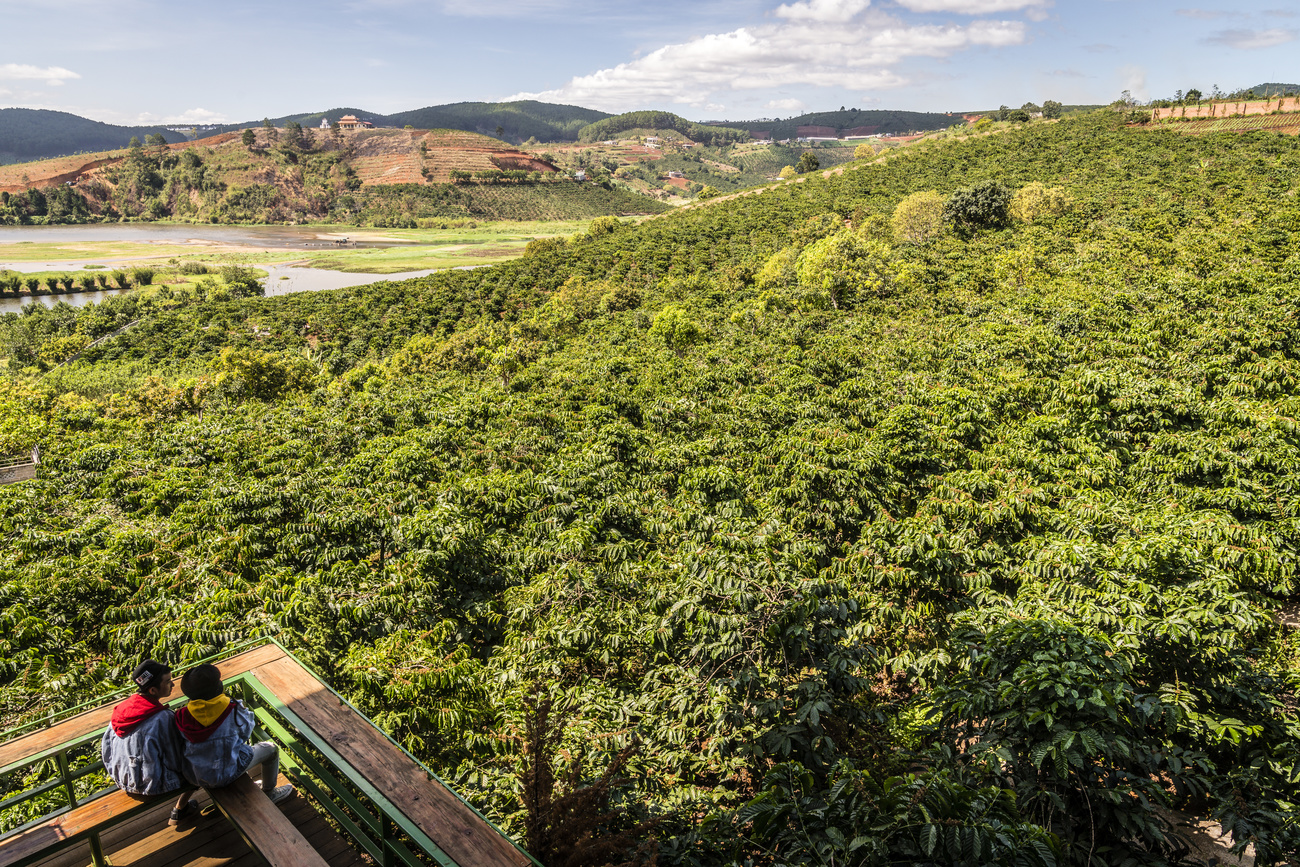
A morning coffee, a chocolate bar in the afternoon, a steak for dinner – all contribute to deforestation in tropical regions. Growing demand for certain imports in wealthy countries like Switzerland is destroying vast areas elsewhere which have a crucial role to play in containing global warming.
“It’s easy to look at the farmers and foresters and countries where deforestation is happening and wish they would stop. But they are responding to the global market. We are buying their soy for our hamburgers and salmon, and their palm oil for our lipstick,” writes Daniel Moran of the Norwegian University of Science and Technology, on the Carbon Brief website.
Whereas forested areas are generally increasing in industrialised countries, including in Switzerland, deforestation is relentless in the Global South. Paradoxically, it has even intensified since 2014External link, the year in which governments, companies, and organisations pledged to curb it. More than half of the losses are due to commercial agriculture, and most of the conversion of land for agricultural use violates national laws and regulations.
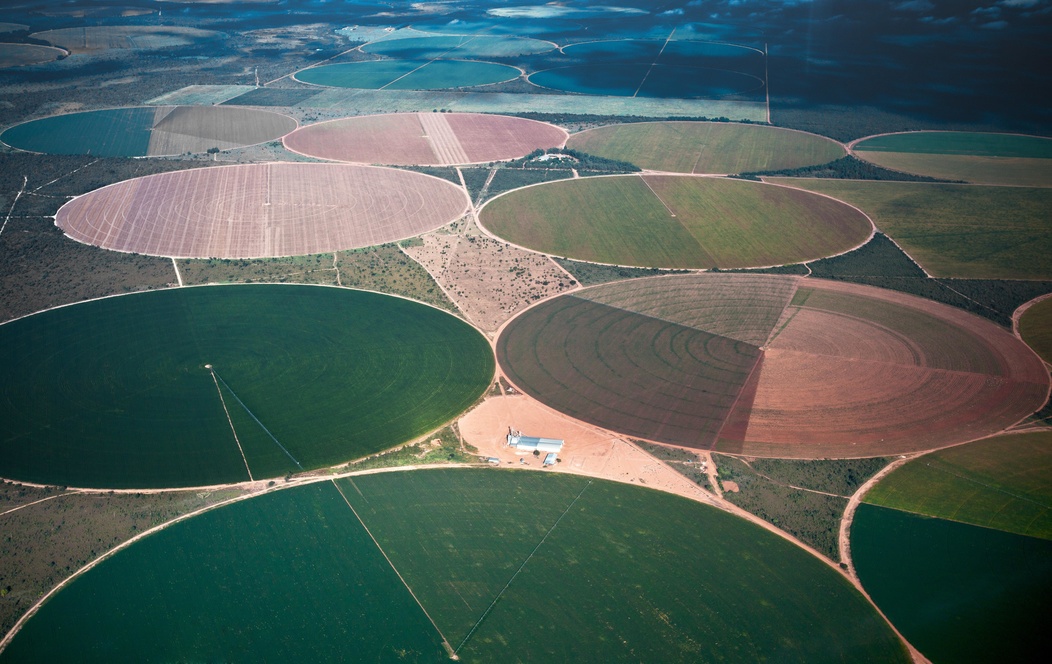
Millions of hectares lost a year
In 2020, tropical zones lost 12.2 million hectares of forest, an increase of 12% on 2019, according to recent data by the University of Maryland and Global Forest Watch. Some 4.2 million of the lost hectares – more or less the area of Switzerland – involved old-growth forests, which areparticularly important ecosystems for CO2 absorption and biodiversity.
Globally, Brazil has lost the greatest area of old-growth forest, followed by the Democratic Republic of the Congo and Bolivia.
Since the 1990s, big corporations and landowners have played a major role in the destruction of forests across the world, says David Kaimowitz, who heads the Forest and Farm Facility, an initative of the UN’s Food and Agriculture Organisation (FAO). And an increasing proportion of deforestation is due to the exploitation of just a small range of commodities, including palm oil, soy and beef, he told the online journal MongabayExternal link.
This finding was confirmed by a recent studyExternal link published in Nature magazine, which claimed that the origins of deforestation can also be found in the choices and habits of consumers in industrialised countries.
Four trees per person
If you live in one of the economically-advanced G7 nations (Canada, France, Germany, Italy, Japan, Britain and the US), you can take credit for the destruction of some 3.9 trees per year somewhere in the world, according to the Nature study.
Cocoa consumption in Germany, for example, “represents a very high risk for forests in the Ivory Coast and Ghana”, says Nguyen Tien Hoang, lead author of the study. Deforestation on the coasts of Tanzania is directly linked to demand for agricultural products such as sesame seeds and cotton in Japan; consumption of fruit and nuts in the US has an impact on forests in Guatemala; while coffee drunk in Italy depends on the destruction of woodland in Vietnam.
“Rich countries are just encouraging deforestation,” says Nguyen Tien Hoang, who is based at the Research Institute for Humanity and Nature in Kyoto, Japan.
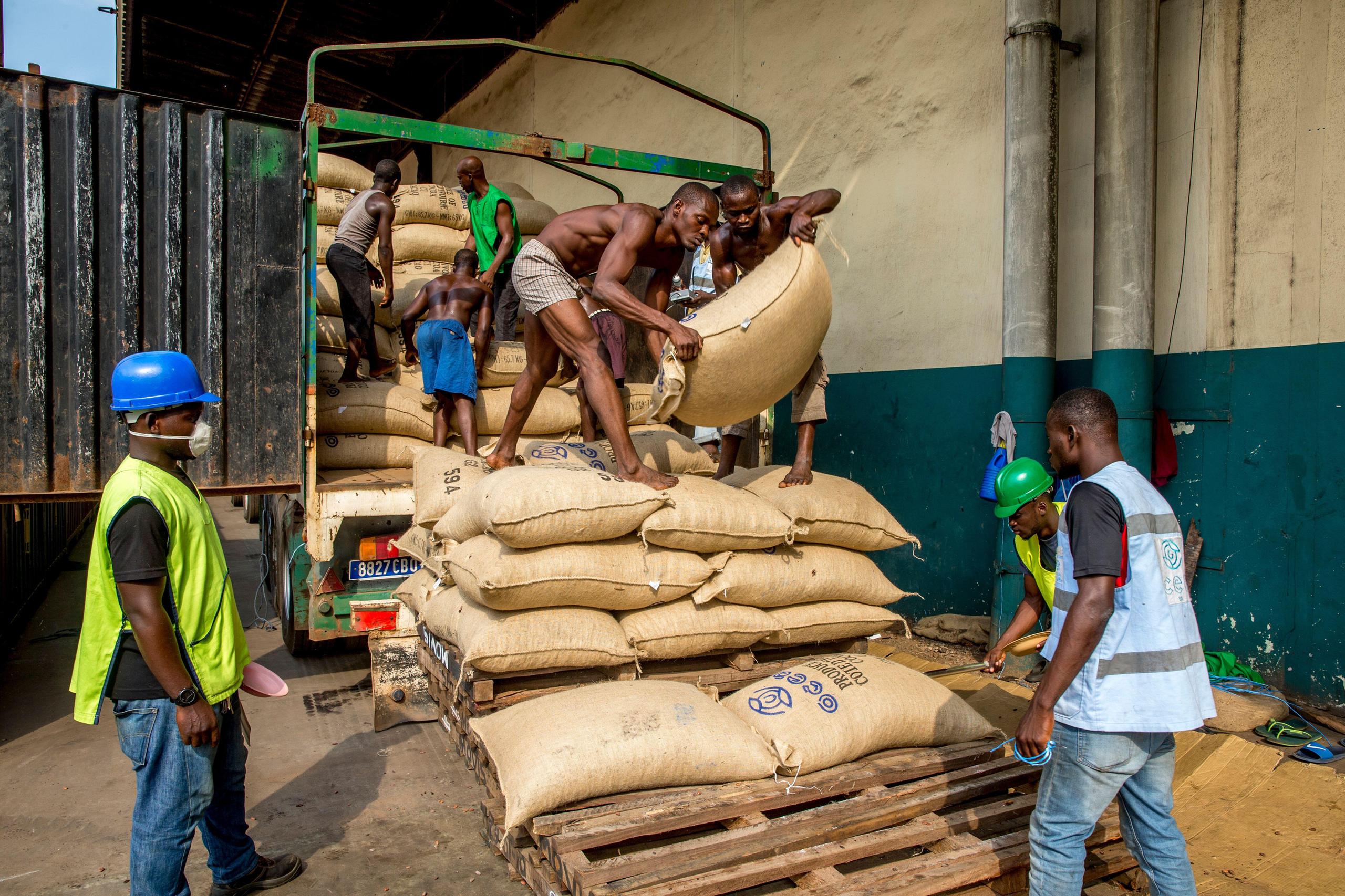
In a separate analysisExternal link, the World Wide Fund for Nature (WWF) comes to similar conclusions: in 2017, imports by the European Union caused 16% of all deforestation linked to world trade, indirectly resulting in the loss of 203,000 hectares of tropical forest. The EU is only outstripped by China (24%), while the US (7%) and Japan (5%) have a more minor impact.
European nations with the biggest environmental footprint are Germany, Italy and Spain, while the Netherlands takes first place when it comes to deforestation per capita.
The WWF analysis says that while deforestation is due to a range of activities – from mineral extraction to the building of roads and the forest industry – the principal cause is commercial agriculture, which clears lands for cultivation and livestock. Some 80% of tropical forest loss is due to the production of just six raw materials:
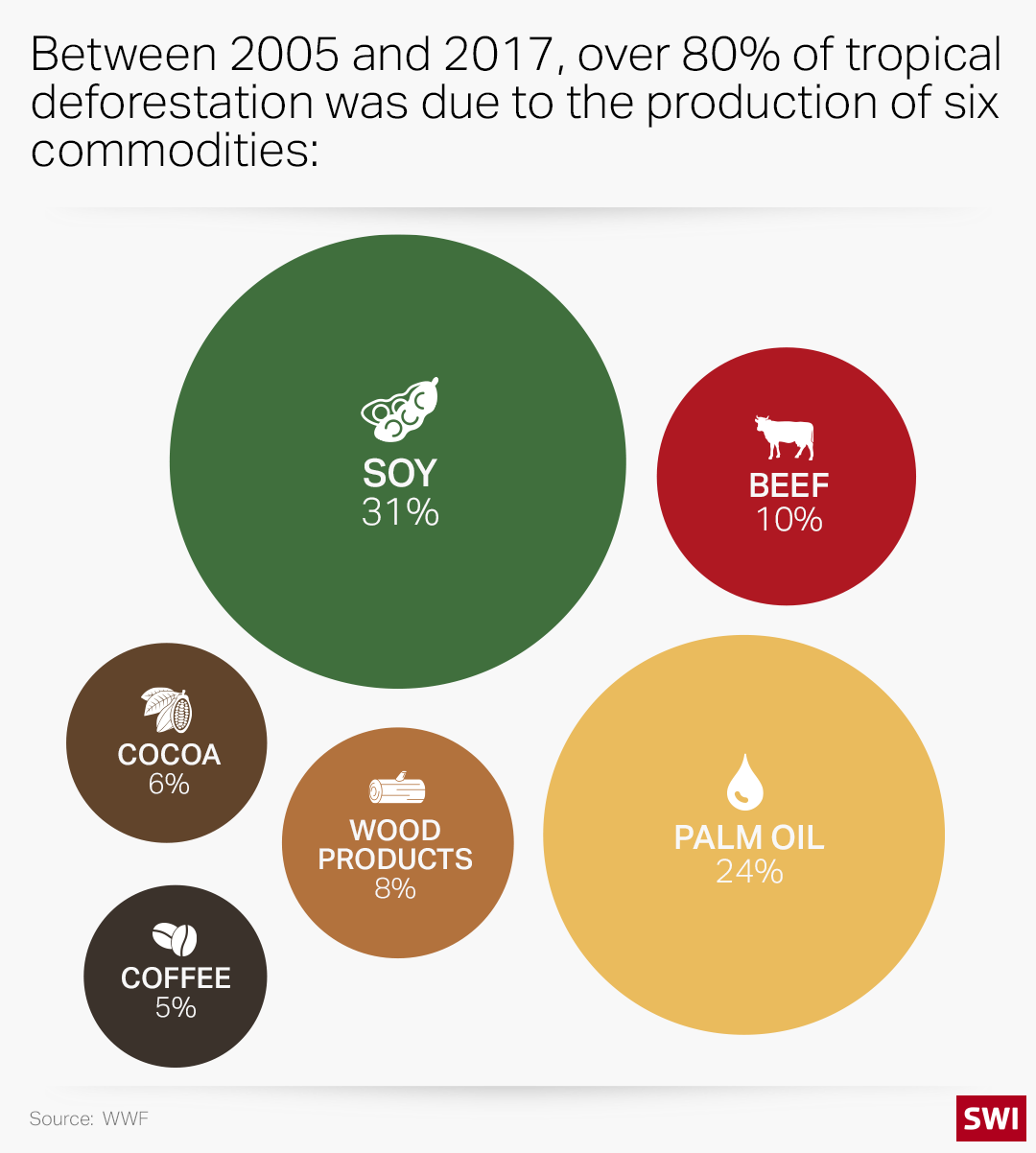
The impact of Swiss imports
Switzerland also bears its share of responsibility. While the country accounts for a mere 0.1% of the planet’s population, it accounts for 3% of world cocoa production and 2% of coffee production, the WWF points out.
One-quarter of Switzerland’s entire ecological footprint is found in countries with a high to very high risk of deforestation, poor government management or inadequate workers’ rights, notes the study.
“The effects of Swiss raw materials imports on deforestation in the world are considerable,” says Romain Deveze, an expert on raw materials with the WWF.
Silvie Lang of the Public Eye NGO says that Swiss responsibility goes beyond imports. “Switzerland is the world’s main hub for agricultural trading, and it is the home of many of the biggest companies in the sector: one of every three coffee or cocoa beans are traded by Swiss businesses,” she told SWI swissinfo.ch.
More
Transparency, traceability
To reduce deforestation linked to international trade, the supply chains for raw materials need to be examined, says WWF, which is calling for better traceability of products.
A pilot project to trace the origin of products was launched in 2020 in Brazil, with several big soy trading multinationals taking part. But achieving complete traceability is difficult, as this SWI swissinfo.ch article explains:
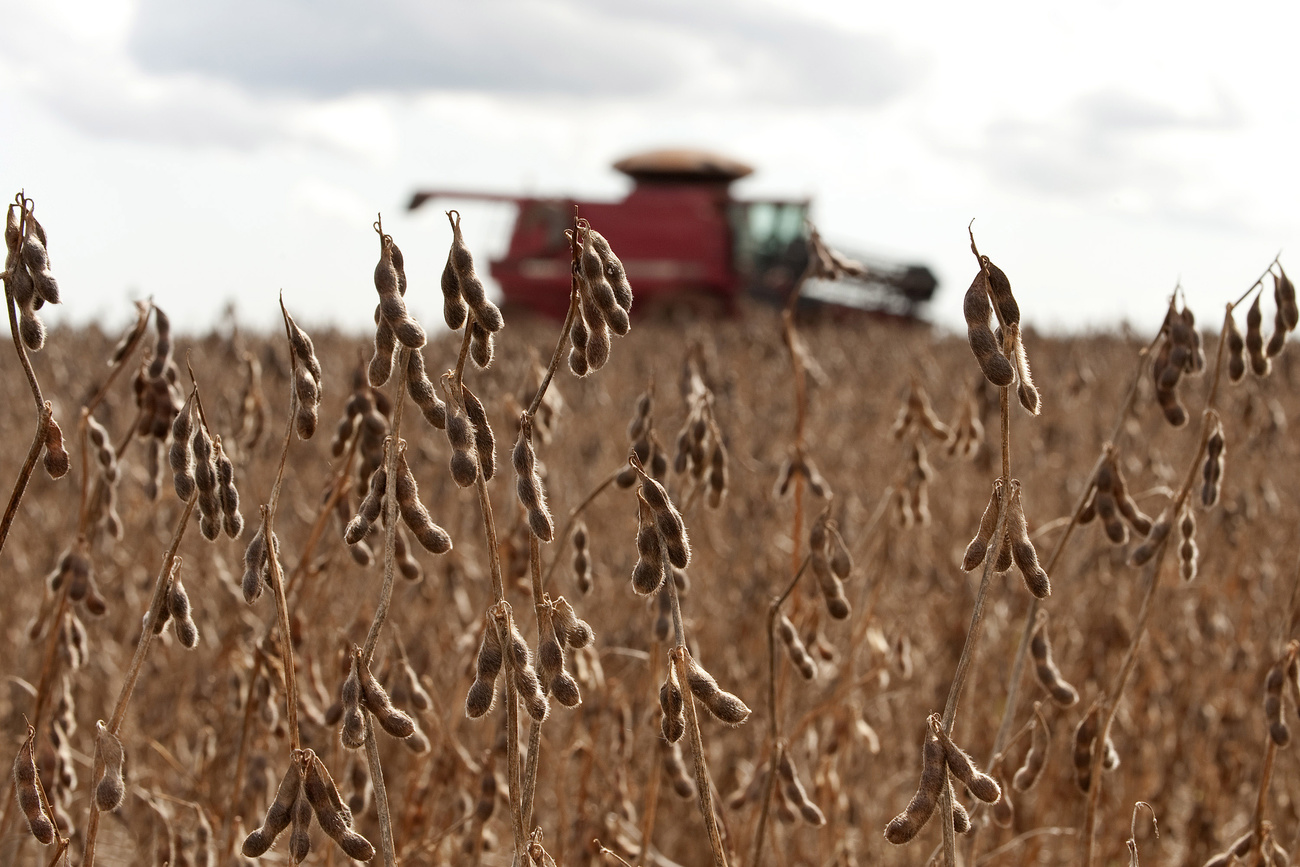
More
Can commodity traders get a grip on their soy supply chains?
Lang of Public Eye also wants greater transparency and traceability. “Consumers, politicians, and sometimes even the companies themselves don’t know where the products are coming from,” she says. In her view, stricter legislation is needed in industrialised countries, while stricter application of laws protecting workers and the environment is needed in producing countries.
As the EU considers a ban on raw materials produced by deforestation – draft legislation will be presented this summer – Switzerland has a rather “weak” regulatory apparatus based on voluntary compliance and dialogue, says Lang. “No Swiss law prevents us from drinking coffee imported from an area of land that was cleared illegally.”
No consequences
In November 2020, a people’s initiative on corporate responsibility – which would have required Swiss companies to respect human rights and international environmental standards not only at home but also abroad – narrowly failed to pass. While most voters nationwide were in support, it fell short of winning a majority of the cantons. The defeat of this initiative opened the way to an indirect counter-proposal that was adopted by parliament.
This latter proposal, which has been put out to public consultation until July 14, calls for less than the initiative did: no new standards, but rather some new requirements, including duty of care regarding under-age labour and mineral extraction in conflict zones. “The counter-proposal is clearly insufficient. Compliance with the requirements will not be policed, and breaches of duty of care will have no consequences,” Lang complains.
Switzerland, she insists, needs a clear and binding set of rules to ensure that its corporations do not pollute or destroy the environment in the Global South. Otherwise, with its weak legislation, “Switzerland will be left behind again” compared to the rest of Europe.
Translated from Italian by Terence McNamee; edited by Domhnall O’Sullivan

In compliance with the JTI standards
More: SWI swissinfo.ch certified by the Journalism Trust Initiative











You can find an overview of ongoing debates with our journalists here . Please join us!
If you want to start a conversation about a topic raised in this article or want to report factual errors, email us at english@swissinfo.ch.